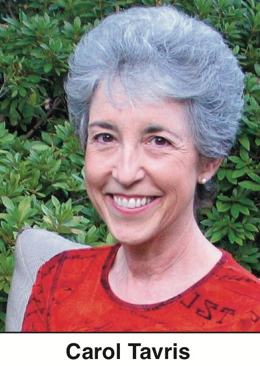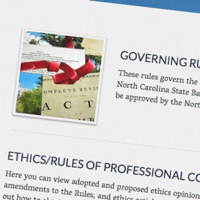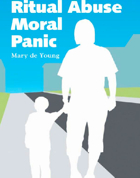Rascals case in brief
In the beginning, in 1989, more than 90 children at the Little Rascals Day Care Center in Edenton, North Carolina, accused a total of 20 adults with 429 instances of sexual abuse over a three-year period. It may have all begun with one parent’s complaint about punishment given her child.
Among the alleged perpetrators: the sheriff and mayor. But prosecutors would charge only Robin Byrum, Darlene Harris, Elizabeth “Betsy” Kelly, Robert “Bob” Kelly, Willard Scott Privott, Shelley Stone and Dawn Wilson – the Edenton 7.
Along with sodomy and beatings, allegations included a baby killed with a handgun, a child being hung upside down from a tree and being set on fire and countless other fantastic incidents involving spaceships, hot air balloons, pirate ships and trained sharks.
By the time prosecutors dropped the last charges in 1997, Little Rascals had become North Carolina’s longest and most costly criminal trial. Prosecutors kept defendants jailed in hopes at least one would turn against their supposed co-conspirators. Remarkably, none did. Another shameful record: Five defendants had to wait longer to face their accusers in court than anyone else in North Carolina history.
Between 1991 and 1997, Ofra Bikel produced three extraordinary episodes on the Little Rascals case for the PBS series “Frontline.” Although “Innocence Lost” did not deter prosecutors, it exposed their tactics and fostered nationwide skepticism and dismay.
With each passing year, the absurdity of the Little Rascals charges has become more obvious. But no admission of error has ever come from prosecutors, police, interviewers or parents. This site is devoted to the issues raised by this case.
On Facebook
Click for earlier Facebook posts archived on this site
Click to go to
Today’s random selection from the Little Rascals Day Care archives….
Click for earlier Facebook posts archived on this site
Click to go to
Today’s random selection from the Little Rascals Day Care archives….
Court finds Hart’s ploy ‘grossly improper’
March 16, 2012
“The appeals court called a maneuver (in Dawn Wilson’s trial) by the chief special prosecutor, Bill Hart, ‘grossly improper.’
“The judges found that Hart had tried to impugn the reputation of Wilson by placing in the courtroom audience two people whose presence was likely to intimidate Wilson.
“Hart never called the pair as witnesses, but… by his actions had implied to Wilson that he intended to use the two people against her in a way that might result in self-incrimination.”
– From the (Norfolk) Virginian-Pilot, May 3, 1995
In 1995 the N.C. Court of Appeals overturned her conviction. And then of course the prosecutors rushed to apologize to Dawn Wilson for their disgraceful vilification.
When imaginary crime leads to real punishment
 Aug. 20, 2015
Aug. 20, 2015
“In the mid-1980s, a friend of mine testified on behalf of an elementary-school teacher who had been accused of being a pedophile.
“A child had told his mother that the teacher had taught them about ‘boobies and dicks’ and had drawn a picture on the blackboard that sounded suspiciously to the mother like an image of an ejaculating penis.
“The police had raced to the classroom and confiscated the damning evidence: several copies of ‘Moby-Dick.’ What the teacher had drawn was a whale and its spout.
“Looking back, we can see that the only boobies involved in this case were the adults. But whenever we are in the midst of a moral panic, as we were in the 1980s, we feel that our alarm is reasonable and that punitive solutions are appropriate.
“Dicks? That child knew the word ‘dicks’? Cancel sex ed! Run that teacher out of town!…”
– From “A Very Model Moral Panic” by Carol Tavris in the Wall Street Journal (Aug. 7)
Ever so slowly, progress made toward DAs’ accountability

ncbar.gov
July 1, 2016
“Prosecutors should have to disclose evidence of innocence obtained after a person is convicted, a North Carolina State Bar panel agreed Wednesday.
“The ethics subcommittee voted 3-2 at a meeting in Greensboro to support the general principle that a prosecutor’s duty to disclose innocence evidence continues after a defendant is sentenced, although the members didn’t settle on specific language. A federal prosecutor and a former district attorney opposed the motion, while three attorneys in private practice supported it….
“The North Carolina Conference of District Attorneys had said in a letter to the State Bar that prosecutors say that the rule is unnecessary….
“The panel is just the first step in a lengthy process that – if the rule is approved at each step – involves the full ethics committee, public comment, the full State Bar Council and finally, the state Supreme Court.”
– From “NC panel: Innocence evidence right continues after sentence” by Martha Waggoner of the Associated Press (June 29)
Read more here.
![]()
Parents ill-prepared to practice psychology
Nov. 28, 2011
 “The Little Rascals case offers a trove of testimony illustrating how immersion into the popular psychology of sexual abuse gave parent-experts the terms and concepts to retrospectively interpret their children’s behaviors and emotions, and to do so with the ring of authority….
“The Little Rascals case offers a trove of testimony illustrating how immersion into the popular psychology of sexual abuse gave parent-experts the terms and concepts to retrospectively interpret their children’s behaviors and emotions, and to do so with the ring of authority….
“One mother testified that once she had learned the psychology of sexual abuse, she realized her child’s denial that anything untoward had happened at the day care center actually was a sign that he had been sexually abused.”
– From “The Day Care Ritual Abuse Moral Panic” by Mary De Young (2004)











0 CommentsComment on Facebook